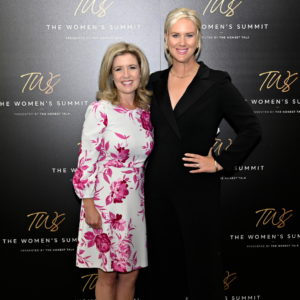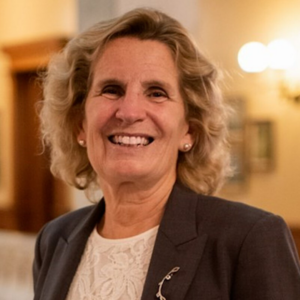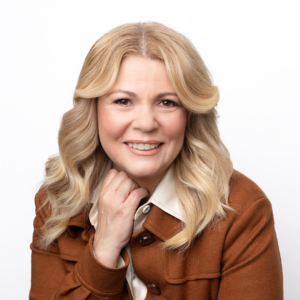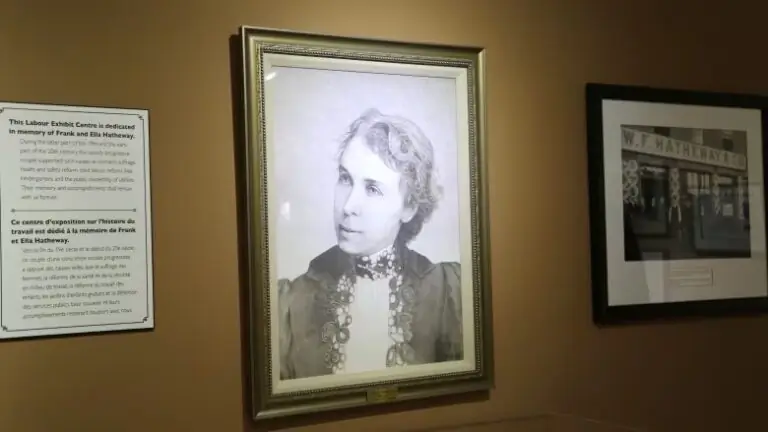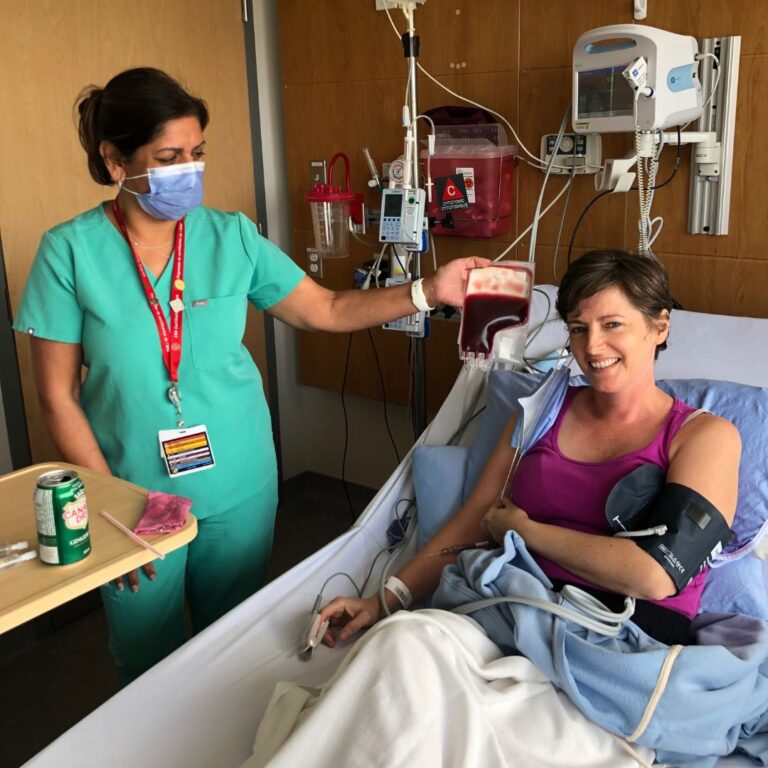Stephanie Dexter – The first female President of UPS Canada
Stephanie Dexter is the first female president of UPS Canada. From package handler to senior leadership, Stephanie has seen it all during a phenomenal career that has spanned over 30 years. Although things are starting to change, the feeling of being the only female in the room is all too familiar to her.
In this free and frank conversation, Stephanie – who is a champion for women in a traditionally male-dominated industry – talks to Jen and Catherine about her professional journey and her inspiration. She shares how she rose through the ranks in a male-dominated corporate world and never let fear of failure affect her decisions to take on more responsibilities.
She also discusses the importance of having both male and female allies and shares her valuable advice to other women looking to be in leadership roles.
Note: This transcript has been edited for clarity and length.
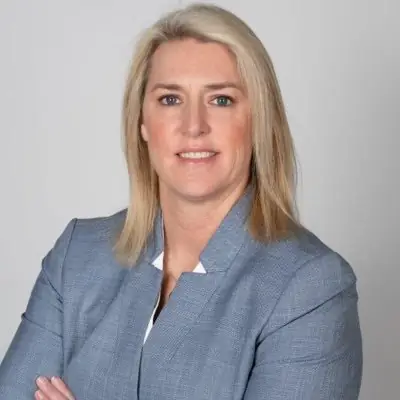
Decision to join UPS as a package handler
Catherine Clark: You started working at UPS as a package handler in California back in 1989. What was that like at the time? Why did you choose UPS? Tell us a little bit about that experience.
Stephanie Dexter: Honestly, I chose them because of the benefits. In the US we don’t get healthcare, and they had healthcare benefits. At that time in 89, it was a very high-paying job. It was a very challenging, very physical job. You’ve really got to get past that first week and hang in there, but I’m very glad I did, obviously.
Building career in a male-dominated field
Jennifer Stewart: How did you get noticed by executives? What was your strategy to move within the company?
Stephanie Dexter: I didn’t know there could be a strategy at that time. There’s not a lot of executives when you’re in the inside operations that come through, particularly then. The big piece is when I went into engineering two years after I started and had a chance to work on some special projects opening the new West Coast air hub at the time. And I worked for a manager named Сrystal Stowey, who I saw as a model of where I wanted to go, keeping in mind that was a manager level. And how she navigated the landscape with her male counterparts, I’d say 99.9 per cent of the time being the only woman in the room.
Catherine Clark: What was that like for you observing the fact that she was there pretty much the only woman in the room and your experience up to that point was that you were often the only woman in the room? Did that make you think that perhaps your options were a little limited? Or did you really not see a gender barrier?
Stephanie Dexter: I absolutely felt options could be limited at that time. In the district that I was in, I did not see a female president until 2005. Not that there weren’t female presidents within the organization. There absolutely were. But my first female president was Rosemary Turner in 2005. That’s when I really got to see a woman in charge, and really, not as much behind the scenes, but her leadership style and how she navigated the waters.
Jennifer Stewart: You’ve said that you would never let fear of failure affect your decisions to take on more responsibility. How did you marshal that fear and not let it overcome you as you progressed within the organization?
Stephanie Dexter: I absolutely can embrace fear at times, especially when taking on a new role. When you go from a full-time supervisor to a manager and division manager within our organization, you really look at others around you, but it’s trusting yourself, knowing that you don’t need to check every box before you go ahead. And I know we’ve talked about that a lot, but no one’s perfect. You’ve really got to have confidence in lean in. I can tell you when I first started, I didn’t lean in as much as I should have. And as soon as I started to do that, that’s when I really started seeing progress in my career.
Catherine Clark: When you talk about having confidence in yourself, who inspired you growing up?
Stephanie Dexter: I think within the organization, when I was younger, there weren’t a lot of role models. My mother was in the restaurant industry, so that wasn’t really within my field. I go back to female mentors, but I’d also say you have to have male allies along with that. Right now, I work for Kate Gutmann, who’s the president of UPS, international, healthcare and SCS. And if you’ve ever read anything about Kate or heard her speak, or been in the room with her, she’s an incredible leader that you really want to sit back and, and really take her advice, because she talks about moving forward without fear.
Leading UPS during the pandemic
Jennifer Stewart: Stephanie, being a CEO and an executive can be daunting in the best of times, and we’re still in a pandemic, and an organization like UPS was increasingly busy during the pandemic. How have you managed the last two years as a professional and as a person?
Stephanie Dexter: I think this was a challenge for everybody personally, in the U.S. And of course, we’re frontline at UPS. It’s a matter of coping through the lockdown and keeping your household a little bit sane, coming into Canada. When I took the assignment in Canada, Canada was in a lockdown and going back to the hard lockdown. And I shared this with my team, that I’d never been in a Costco, that you couldn’t buy goods, that you could only buy groceries out. So, it was a real shocker for me when I came in, not to mention the quarantine my family had to go through. But it really is about getting an opportunity to enjoy other things. So personally, it’s about getting outdoors, going for walks in Canada. There’s all new things to discover, beautiful area to explore by the lake and the trails, and activities when they let you back in the ice hockey rink.
From a professional side, my team, we put safety protocols in place. We had to pivot quickly to ensure our team would stay safe because we still had people working in the buildings, people going out on road, and I was in the buildings daily. So, we never stopped going to work. And I’ll tell you, it’s all about the safety protocol and keeping the team pumped up. But you’ve got to make sure you stick with it. I’m so proud of UPS-ers, not just in Canada, but worldwide, for really delivering what matters, delivering over a billion doses of vaccine and over a million here in Canada.
Jennifer Stewart: That’s obviously extremely influential to how we manage this entire pandemic. But you talk about sustaining that momentum and sustaining those protocols. We all thought we had to sustain it for two weeks or a month to flatten the curve. But it was two years. How did you sustain your momentum throughout that process?
Stephanie Dexter: I thought, ‘This is going to be for about a month. We’re going to have to get through it, then everything will be back to normal. You’ve got to just keep moving forward.’ I think after the first month, and then the second month, the third month, we started to understand that nothing was going to occur until we got a vaccine.
Quite a ray of light when the vaccine started coming out in November 2020. You have to just keep the team pumped up and really stay safe. It’s a matter of ensuring that your team gets the communication, that what we need to continue doing as far as safety protocols. And then the adherence and understanding that we care about them. We care about their family and keeping everyone safe while we’re here working and serving the community.
Mentoring women
Catherine Clark: Stephanie, I want to circle back to the idea of mentorship because you talked about how important that was for you. Are we doing enough mentoring for women in general? And if not, are there different things that we could be doing to really amplify the voices of women within industries that don’t traditionally have women leaders?
Stephanie Dexter: Within UPS, we do have a mentorship program. Are we doing enough? No. And are women raising their hand for mentorship? That’s the other piece, right? We have to make sure that we’ve got the role models that are really modeling, that they’re in the job, and women have really a desire to go there.
Say “Yes” to opportunities, to doing more.
Stephanie Dexter
But as a mentee, what piece of advice I’ll give you is you’ve really got to make sure you’re making the appointments with the mentor, the connections with the mentor, if it’s a senior leader. And I’ll tell you this, I think a reverse mentor is really a critical thing to have, especially when you become a senior leader. I had a reverse mentor. I’m the one who kept up. I’m the one who made the appointments. And I learned so much about what that younger female leadership wants, where they want to grow, how they want to be led, and the different thoughts and ideas they have and where they feel stifled.
I think a reverse mentor is really a critical thing to have, especially when you become a senior leader.
Stephanie Dexter
It’s really important to recognize that, what are you hearing in terms of those stifle points about where women are not able to bridge that gap in their career or the challenges that they’re continuing to face. When do I take my time to lean in, and kind of a little bit sitting at the table, owning their seat, giving their ideas, especially if their leader is male, really struggling to want to have that voice. And typically you’re surrounded by a lot of men who are not afraid to speak out. The other piece of that is understanding that it’s a bit different for women, I think, in when you’re at the table, how you come across. Men will see it differently. Not all the time. But knowing who your allies are in the room, and maybe talking to them a little bit about the idea as you go to lead into that.
Catherine Clark: And talking about men, we do need allies, we do need people who are there to help us and not just other women. What role do men have to play in this whole equation?
Stephanie Dexter: Men have to be allies and mentors. And as much as I can talk about my female mentors, I could list just as many incredible male mentors that I had in my career, at every level, that pushed me along the way, that had faith that we would talk a lot about, not just professional life, but managing that balance in the personal life as you strive to go to greater levels. So men play the role of mentor and ally.
Men have to be allies and mentors.
Stephanie Dexter
Sacrifices to build the career
Catherine Clark: Stephanie, can I ask you what you’ve had to sacrifice to build the career that you have?
Stephanie Dexter: I think the first sacrifice along the way is your time, you give up a lot of time. And you’ve got to really learn that balance of being able to schedule and that you don’t need to be there every minute to show that you’re dedicated. You really have to be mindful of how you balance that. And then I think personal sacrifices — being away from my family, my partner in different assignments I’ve taken. And missing some moments, there are times where significant events could be going on in your life. And for me, not even being in the country, death of a family member – that’s something you take to heart.
Jennifer Stewart: Stephanie, we’ve had a lot of executive women on the show talking about that inability to strike a balance, and sometimes at this level in your career balance is a mythical word sometimes. But what makes it worth it? It sounds like you really try to attend those events and prioritize but sometimes you simply can’t. What makes it worth it about your position and your experience with UPS that sometimes you’ve got to lean into that role and other things can fall to the wayside at times?
Stefanie Dexter: What makes a difference with it is scheduling. I think you’ve got to be able to talk to your boss and go. You’ve got to know that you can go and they’re going to be okay with it. One terrific example: my father was very sick. I was a division manager in San Diego and my stepmother called me he had been hospitalized and I happened to be in my office and trying to determine, ‘When do I go? What’s a good time to leave?’ My boss walked in and said, “Leave now. Go get on a plane. Don’t go home, don’t get clothes, leave now.” Unfortunately, we got there and he died within an hour and a half. But you’ve got to know that your leadership should care about you and your personal needs and your family as much as you do.
What makes a difference with it is scheduling.
Stefanie Dexter


